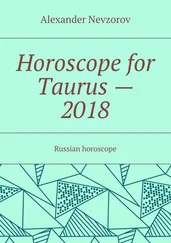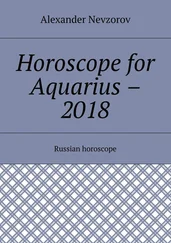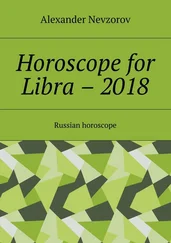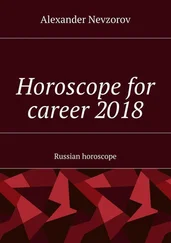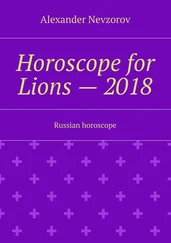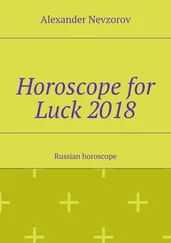Soon afterwards I was told that all plans had changed and that I was first of all to go to Moscow for discussions. I would be flown there on the return journey of the plane which was to bring Maurice Thorez back to France. The plane arrived towards the end of November and was due to return after a couple of days. It did not do so, however, as the pilot and the crew were busy sampling the delights of life outside the Iron Curtain and had not the slightest desire to leave the fleshpots of the decadent democracies for the husks of pure Marxism in Moscow. As a result all sorts of ingenious excuses were thought up by the crew for delaying the return trip, ranging from mechanical defects and bad flying weather through veiled suggestions of sabotage by the wicked Allies to plain illness of one of the crew. This pleasant game was put to an end by a stern signal from Moscow- ordering them to leave the next day or be shot when they did return; but they had had their fun.
In the meanwhile an interesting situation had developed in the Rue du General Appert. One evening, on one of my routine calls to the Mission, I was amazed to see Rado sitting in the waiting room. My surprise was nothing to Rado's. I knew that he had left Switzerland en route for Paris. He, on the other hand, had thought I was still incarcerated in a Swiss prison. Despite this, our training held and, as good secret agents, we neither of us showed any signs of recognition there. Only later when we were both summoned into the presence of Novikov did we speak to each other. Novikov said that no good purpose would be served by discussing then and there the whys and wherefores of the breakup of the Swiss organisation. He added that we were both going to Moscow, where the matter could be thrashed out in detail and at leisure, and that we were both to travel by the same plane. He also suggested that as there would be other passengers it would be better, from a security point of view, if we travelled as strangers.
This rather difficult interview was followed by the usual banquet. At it, for the first time, I saw Rado affected by alcohol. He confessed later that it was the first time for many years that he had drunk more than one glass of spirits at one time. If one got out of a Russian dinner having consumed ten times that quantity, one was doing very well. During the course of this convivial dinner- convivial on the surface but with certain rather sinister undercurrents- every subject was discussed save the Swiss network. Despite Rado's libations he acted rather as the skeleton at the feast. The only fact of interest that I learned was that he had arrived about a fortnight before.
This gave me furiously to think. For a fortnight I had been kept ignorant of the fact that Rado had arrived, despite the fact that he had seen Novikov and that Novikov knew that I wanted to see Rado. We had obviously been deliberately kept apart until both our stories had been taken and there was no longer any risk of our comparing notes and concocting a co-ordinated story. Rado's arrival had also coincided with the "change of plan" by which I was no longer to go to Annemasse as a Dutchman but to return to Moscow for "consultations." Obviously Moscow was not satisfied with the Swiss setup and it seemed equally likely that Rado had put in a story which differed radically from mine. Rado was, of course, unaware that I had overstepped all the normal espionage rules and had, in fact, contacted all our sources after my release from prison. He assumed, therefore, that I was ignorant of the state of the network after Rado had left it in the air and thought that I was in no position to contradict him.
Moscow, therefore, was determined to have us both back there together so that they could cross-examine us at leisure and compare one story against the other. This did not particularly bother me. Admittedly, Rado was a theoretical colonel and a man of high standing with the Centre, while I was only an equally bogus major, unknown personally to anyone at the Centre and of comparatively new standing. On the other hand, the account I had given to the Centre via Novikov was true in every respect and could easily be checked by reference back to Switzerland. Similarly, all my accounts were in order and could be checked by anyone and found to be correct to a dollar. Also in my favour was the fact that I had left Switzerland having made all arrangements by which a new resident director could pick up the threads easily and quickly; while Rado on the other hand had escaped in a hurry, leaving everything completely in the air and having made no arrangements for any continuity. In theory and in fact my position was impeccable- if only
Moscow would realise it and take the trouble to check the work of an unknown agent against that of an agent who had worked for the Centre for years. I looked forward to the trip to Moscow with somewhat mixed feelings.
For some time I had been considering my position vis-a-vis the Russians. Indeed, for a long time I had been disillusioned and unhappy about the attitude of the Centre. It was entirely ruthless, with no sense of honour, obligation, or decency towards its servants. They were used as long as they were of any value and then cast aside with no compunction and no compensation. The director expected miracles from the agents and the local Communist parties, and when the miracles were performed, there were no thanks and only a formal acknowledgment. Similarly, when the Centre demanded the impossible or the foolish- or both- and it was pointed out to them that the action would either end in disaster or frustration, there was never any sign that they had learnt a lesson or that they had any symptoms of contrition. Some of these attributes are no doubt common to all intelligence services, but the cold-bloodedness of the Centre and its lack of any common humanity or decency made it stand alone.
I argued to myself that I could not consciously and deliberately desert the work and throw my hand in altogether. It would have been perfectly easy for me to go to the British diplomatic or service authorities in Paris and explain who and what I was and get speedy repatriation to England. Similarly, I could throw a brick through a Paris police station window and get myself arrested, with an exactly similar result. But this I would not do.
The war was still on and the information available in Switzerland was useful, if not vital, to the Russians - who were Allies. It was clearly my duty to do all I could to get the network against Germany working again. Deliberately to desert the work would have been in my eyes equivalent to desertion in the face of the enemy. On the other hand, I argued that if once I got to Moscow it might be many years before I saw Europe again, if at all, and all my desires to get the Swiss network re-established so as to extract the vital information out of Germany might be equally frustrated by suspicious Kremlin officials.
In the end I made no decision one way or the other and left the whole thing in the lap of the gods. I made no attempt to get myself arrested or to contact the British or Americans. On the other hand, I continued to live in hotels and to move freely round the town as if I had been the best-, rather than the worst-, documented Englishman in Paris. At the time the police were making frequent raids and setting up unexpected check points in the city in an endeavour to catch deserters and also to check up on the many alleged Abwehr agents who were supposed to have been left behind at the time of the liberation. In addition, there were, of course, the various swoops and checkups by the military police of the Allies.
Soon after I had come to my decision I thought that the matter was quite definitely going to be taken out of my hands. I was on my way to my favourite restaurant, Chez Mermoz, in the Rue de Tremoille, for dinner and had taken the Metro and got out at Marboeuf only to find that the police had blocked all the exits and were examining all papers. I was last in the queue and felt a certain relief that finally the future had been taken out of my hands and that I need think and plan no more. I presented my visaless and unstamped passport for inspection. The inspector in charge of the point saluted and waved me on without a glance. The dice appeared definitely cast for Moscow.
Читать дальше




